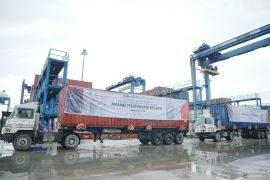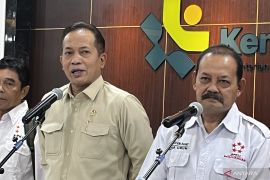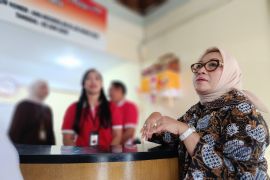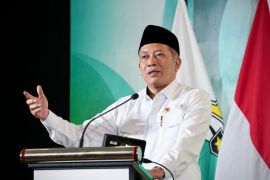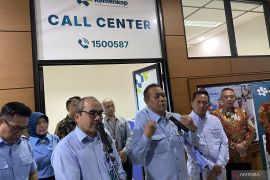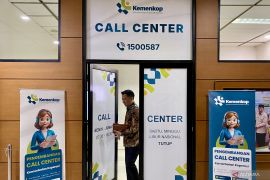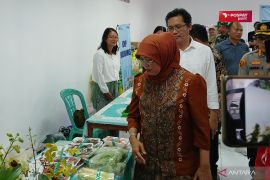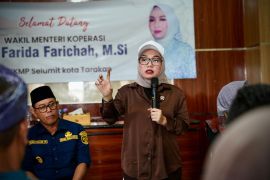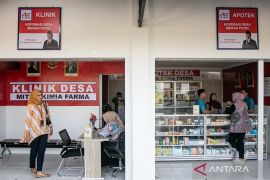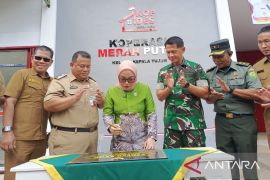Cooperatives and MSMEs have long contributed to the nation not only in statistically measurable terms but also in building social and economic resilience at the community level.
Their contribution has been significant: MSMEs accounted for 61 percent of the gross domestic product (GDP), absorbed 97 percent of the workforce, and comprised 99 percent of all business units in the country in 2024, according to the IMF Country Report.
However, these figures invite deeper analysis.
With around 67 percent of MSMEs still operating in the informal sector and only 15.8 percent successfully entering export markets, institutional and policy transformation have become increasingly critical.
The challenges lie not only with business actors but also within the systems and knowledge frameworks that support them.
The same applies to cooperatives, which are often positioned as democratic and value-based pillars of the people’s economy.
However, their contribution to the national GDP remains low, estimated at around 2 percent.
The government aimed to increase this figure to 5.5 percent by 2024 and up to 10 percent in the long term.
To achieve this target, the nation needs something more than regulations and incentive programs. Specifically, what is needed is a comprehensive overhaul of governance systems, financing models, human resource capacity, and a more responsive support ecosystem.
This makes research, reflection, and strategic learning important. The transformation of cooperatives and MSMEs cannot be based on assumptions alone, but must be grounded in a solid understanding of data and local contexts.
The effort calls for a willingness to re-evaluate current approaches and redesign people’s economic empowerment strategies based on new realities.
Institutional transformation
Chairperson of the board of trustees of the BACenter, Burhanuddin Abdullah, emphasized the importance of establishing research centers focused on cooperatives and MSMEs to drive sustainable institutional transformation.
In his view, the contribution of cooperatives and MSMEs to the national economy is not only significant but also strategic. However, they still face significant challenges.
For MSMEs, these include the dominance of the informal sector, low productivity and innovation, and limited access to export markets.
This also reveals issues related to human capital, logistics, regulatory complexity, and financing systems.
Cooperatives, on the other hand, are faced with weak human resources, limited funding, poor governance transparency, and potential political interference.
Therefore, a comprehensive, integrated, and data-driven approach is essential.
The vision, he said, is to build cooperatives and MSMEs as inclusive, resilient, and globally competitive pillars of the national economy.
For this, Indonesia needs to focus on four areas. First, strategic and data-based studies that can lead to more accurate policies. Policies lacking data often result in programs that fail to meet real needs.
Second, an innovative ecosystem should be developed to support the growth of cooperatives and MSMEs, not only in terms of technology, but also partnerships, access to information, and fair fiscal policies.
Third, the adoption of technology and sustainability must be encouraged as parts of future business models for co-ops and MSMEs.
Fourth, partnerships among stakeholders, government, private sector, and civil society, must ensure MSME and cooperative empowerment becomes a shared movement.
Real experience
Independent research institutions must also serve as cross-sector dialogue spaces to bring and test ideas about the future of people’s economy.
Such forums can lead to working models that are grounded not only in theory but in real-world experience.
The forums can also develop capacity-building and training programs that are not generic, but tailored to local needs and specific business sectors.
One shortcoming of current MSME and co-ops’ empowerment approaches is their uniformity. MSMEs in food processing, for example, have different needs than those in digital or agribusiness sectors.
Therefore, training programs, market access, and incentive systems should be designed based on sectoral and regional profiles.
This is where reflection and data become important tools for shaping realistic and impactful transformation strategies.
A knowledge-based approach is not meant to replace technical work or fiscal policy, but to serve as a foundation that ensures these programs are targeted and effective.
Honest research, contextual assistance, and cross-sector collaboration are a must for ensuring that cooperatives and MSMEs not only survive but also improve.
In a rapidly changing world with technological challenges, climate crises, and geopolitical uncertainty, economic strength must be built from the ground up, with organized communities, crisis-resilient businesses, and fair, transparent governance.
Cooperatives and MSMEs can meet all these criteria, if the supporting systems are improved and human capacity is developed.
Abdullah emphasized that building the people’s economy is not merely a technical task. It is a political and moral choice that must be made to create an inclusive and sovereign nation.
Cooperatives and MSMEs should no longer be viewed as mere objects, but as active agents of change with the rights and capacity to lead Indonesia’s economic transformation.
Related news: Ministry plans digital training for creative economy MSMEs
Related news: Indonesia sees surge in MSME permits, halal certificates
Related news: Women drive 64 percent of MSMEs: Deputy Minister
Translator: Hanni, Kenzu
Editor: Azis Kurmala
Copyright © ANTARA 2025

